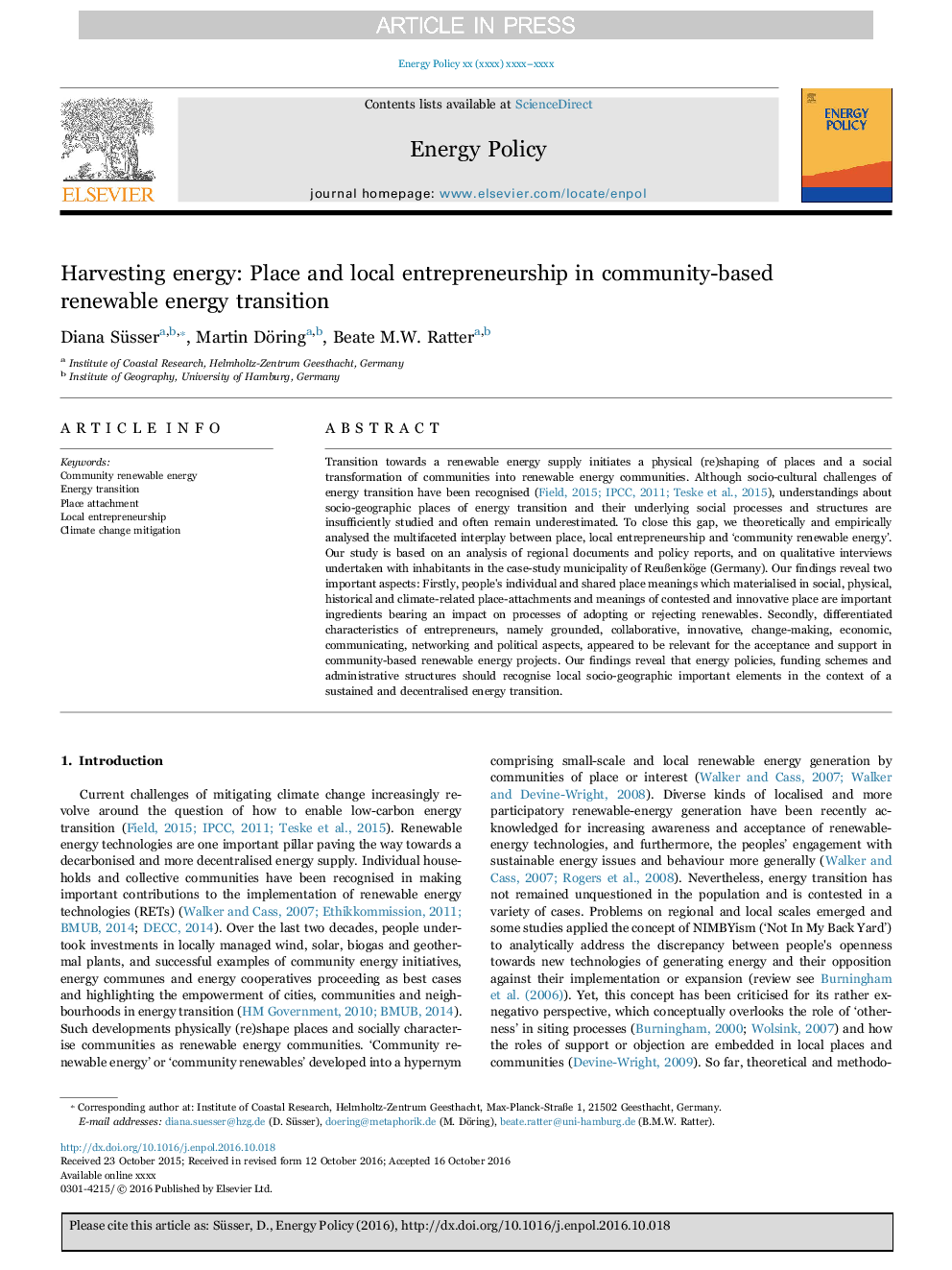ترجمه فارسی عنوان مقاله
برداشت انرژی: محل و کارآفرینی محلی در انتقال انرژی های تجدید پذیر مبتنی بر جامعه
عنوان انگلیسی
Harvesting energy: Place and local entrepreneurship in community-based renewable energy transition
| کد مقاله | سال انتشار | تعداد صفحات مقاله انگلیسی |
|---|---|---|
| 95154 | 2017 | 10 صفحه PDF |
منبع

Publisher : Elsevier - Science Direct (الزویر - ساینس دایرکت)
Journal : Energy Policy, Volume 101, February 2017, Pages 332-341
ترجمه کلمات کلیدی
انرژی تجدید پذیر جامعه، انتقال انرژی، پیوست محل کارآفرینی محلی، کاهش تغییرات اقلیمی،
کلمات کلیدی انگلیسی
Community renewable energy; Energy transition; Place attachment; Local entrepreneurship; Climate change mitigation;

